City Matching Grant Transforms Community Orchard
February 15, 2016
It’s time to review 13 months of orchard infrastructure work, an extensive effort funded with a Seattle Department of Neighborhood (DON) Matching Grant. We are especially thankful to Allynn Ruth (DON) for securing a four-month extension of time to complete our work. Construction took longer because we did most of the work ourselves and also maximized use of recycled materials. Vale la pena! We all learned some cool new skills.
With Max’s help, we created a slide show to illustrate the steps for all five of our major projects: shed move, shed rebuild, cistern pad and cisterns, city water, path, garden beds and trellises.
Shed Move – We had to move the shed several feet in order to make room for cisterns. Ropes were threaded under the shed and tied to a long bar on each side. Five strong people per side pulled up on the bars, shuffled several feet and then set her down on new pavers. The cost was zero but 85 volunteer hours were needed for planning, leveling, cleaning out shed, tearing the old roof off and dismantling it to reuse the wood. We made eight new friends.
Shed Rebuild – Volunteers rebuilt a previously-donated shed in order to catch roof water and to increase storage capacity. Once we chose the cistern size, the shed design followed; the lower edge of the roof needed to be ten feet from the ground. We made calculations, checked our calculations, made calculations and checked our calculations. Most of the hammering was done in a weekend. We spent $4,100, which included materials for build-out of the inside of the shed. Volunteer hours were roughly 816 and we made nine new friends.
Cistern Pad and Cistern – We were told we had the best pad the cistern installer had ever seen! We used cedar for the frame and we used a skill saw to make half-lap joints. The pad frame contains a layer of sand, then crushed rock. Total cost of the pad was $640 (think cedar). Two 1,500-gallon cisterns, plus install and other misc costs was $3,826. The effort took about 85 hours.
City Water – We added city water as a backup to the cisterns. Pacific Landscaping dug a trench, laid 250 linear feet of plastic pipe, and installed valves, vertical pipes and spigots. We used recycled wood and dug posts into the ground to secure the pipes. The hard work came next: backfilling and replacing sod. Total cost was $9,700, including $8,700 to SPU for installing a meter and repairing a patch in the street. 120 Volunteer hours were logged in.
Crushed rock path – Hurrah! You don’t need swamp boots to traverse the area in the winter, that is, unless you stray off the path. We spray painted the 577 linear foot path and designated areas for the dug up sod to be dumped. Pacific Landscaping came back and, with a front loader, they dug up the sod and dumped it into future garden bed sites. During our planning meeting, when the number of wheelbarrow runs of rock was estimated to be 230 trips, several handy volunteers jumped at the chance to try a mule and a walk-behind front loader. We laid down Geotec cloth in the muckiest part of the path and then spread 40 cubic yards of crushed rock and compacted it, all within a weekend. The cost was $3,660. This includes $1,670 for crushed rock, $520 for tool rental, and $880 for excavating. It took 280 volunteer hours and we made six new friends.
Garden Beds and Trellises – After a much needed break, we started piecing together garden beds. About 50 tons of dirt needed to be pushed around and molded. Nine garden beds were made: five mounds, three Faswall framed beds and one rubble framed herb spiral. Surely we have the only Octagon in town; no one else would so be naive not to realize how laborious it would be to build one. Our herb spiral doubled as a drainage improvement project; we buried a couple of large logs under the spiral. We also made three grape trellises from old metal pipes and hose clamps. Concrete blocks were partially dug in the ground to house the trellis uprights. Rebar was then pounded into one concrete block cell and concrete was poured and mixed in both cells. Costs were $2,524 hours, the largest cost being $1,300 for the Faswall bed frames. 265 hours have been logged in and we have six more new friends. .
Costs to date are $32,000. In addition to the costs above, we spent another $8,000 for: art , tools, supplies, tree move and removal, food, plants and gifts. The required volunteer match to earn a $32,000 grant is 1,600 hours. We have far surpassed that goal with 3,153 hours and counting! Total new friends since the grant start date is 56.
Within the next couple of months, we will finish the garden beds, plant new fruit trees and vines, and complete the native plant section in the south end.
Ruth

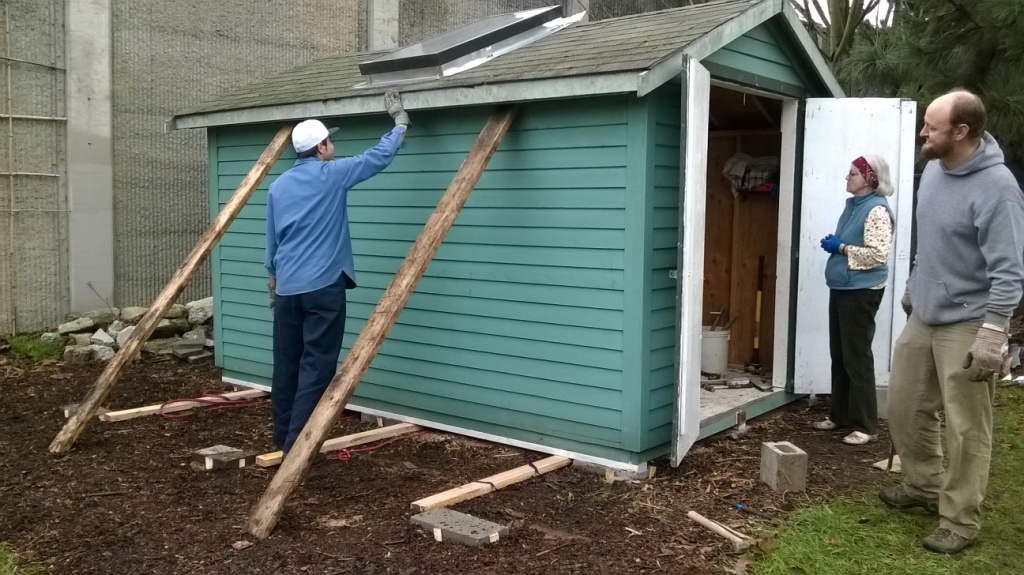
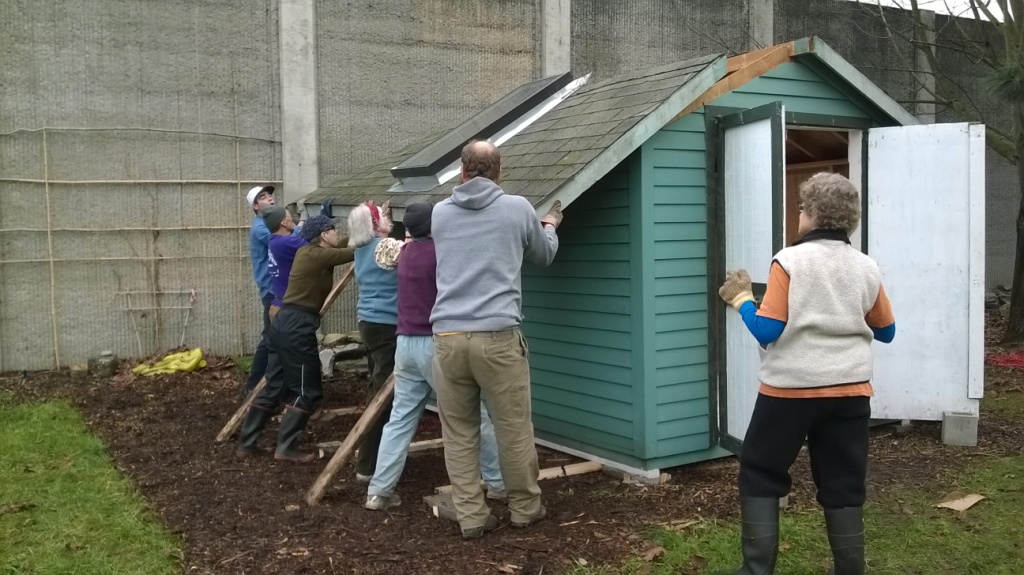
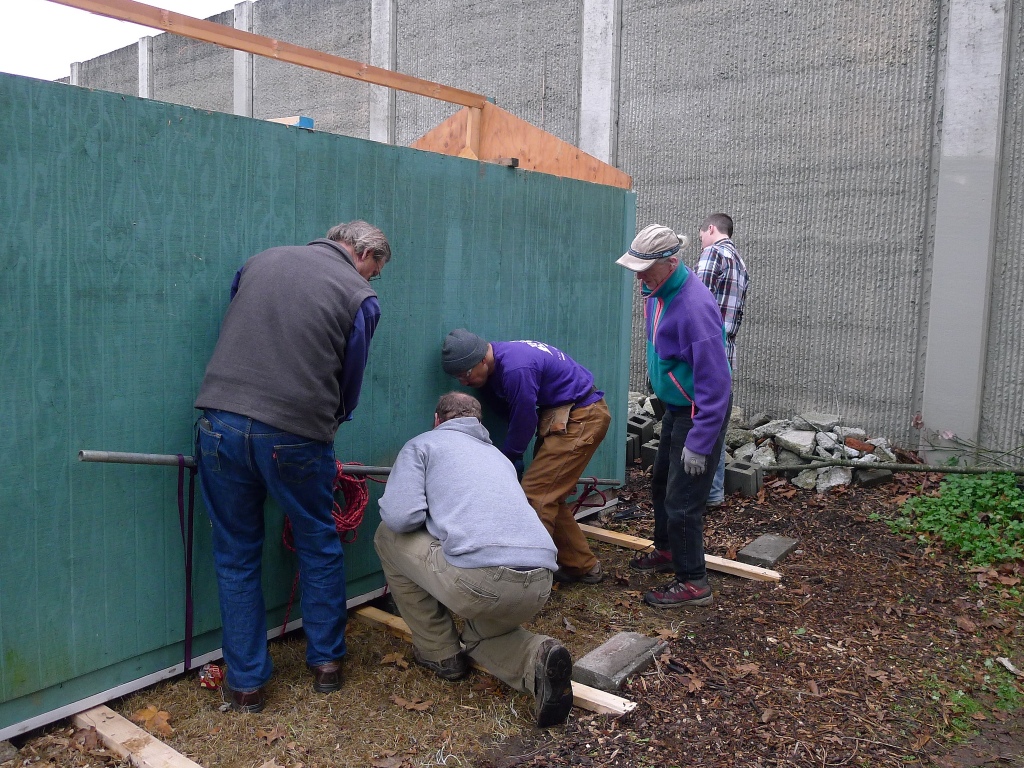
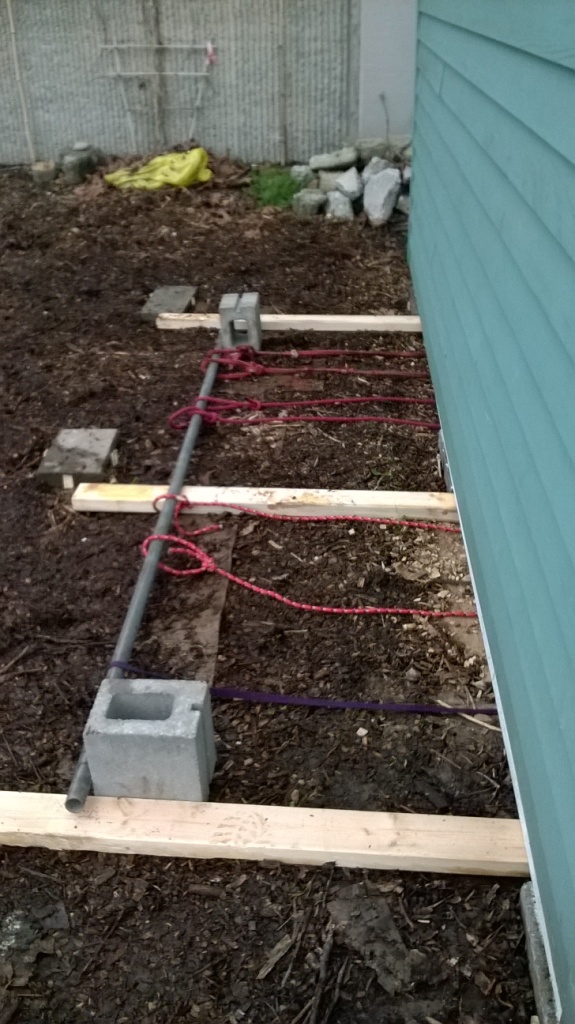
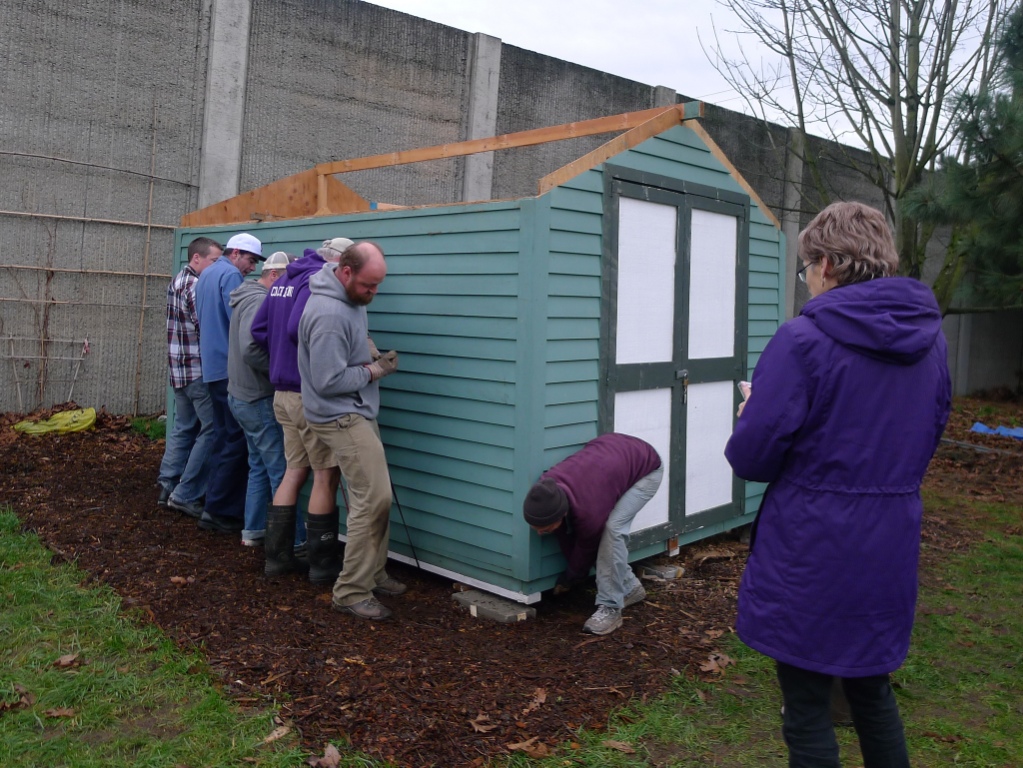
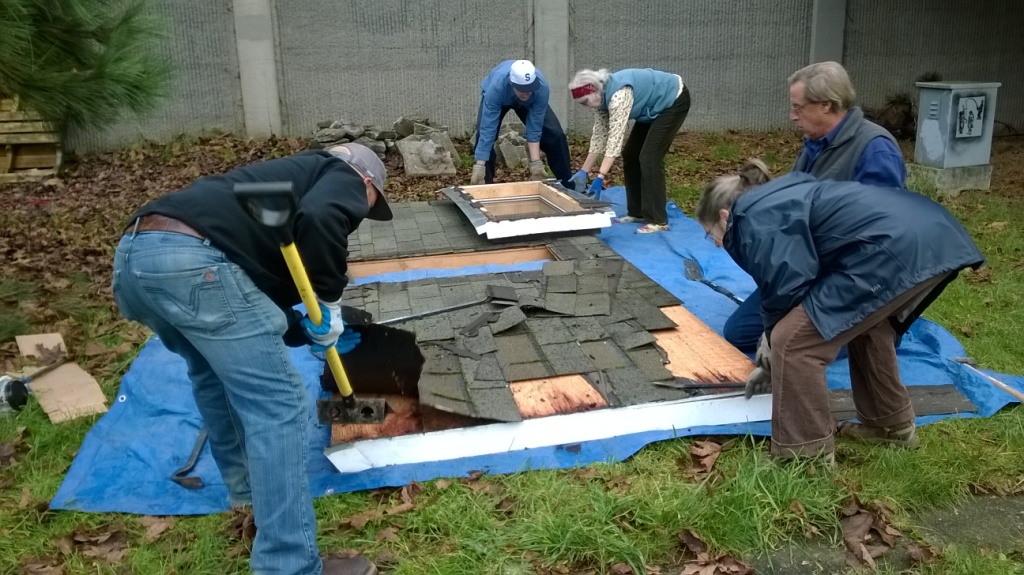
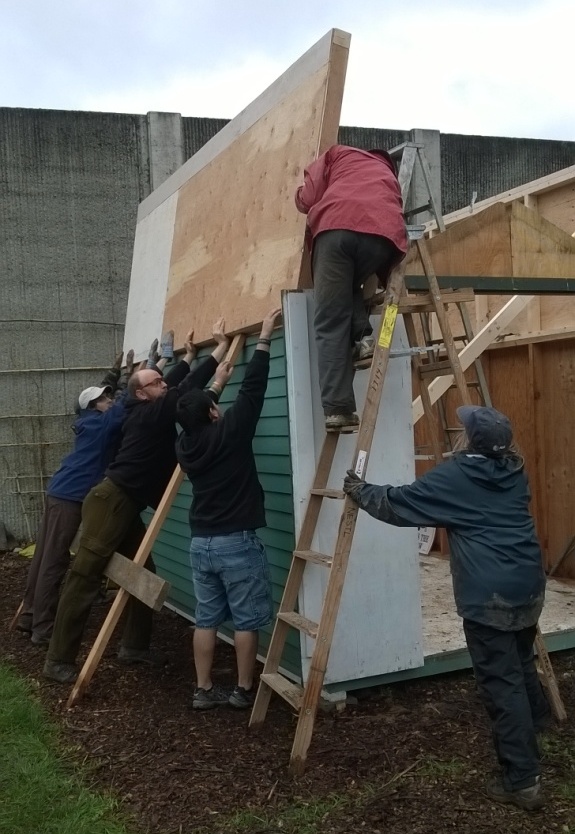
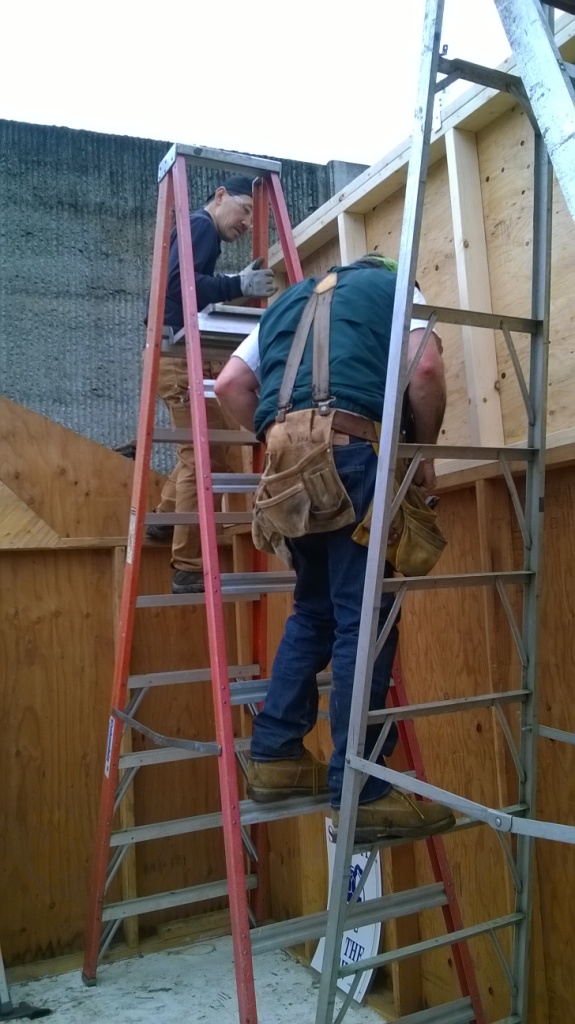
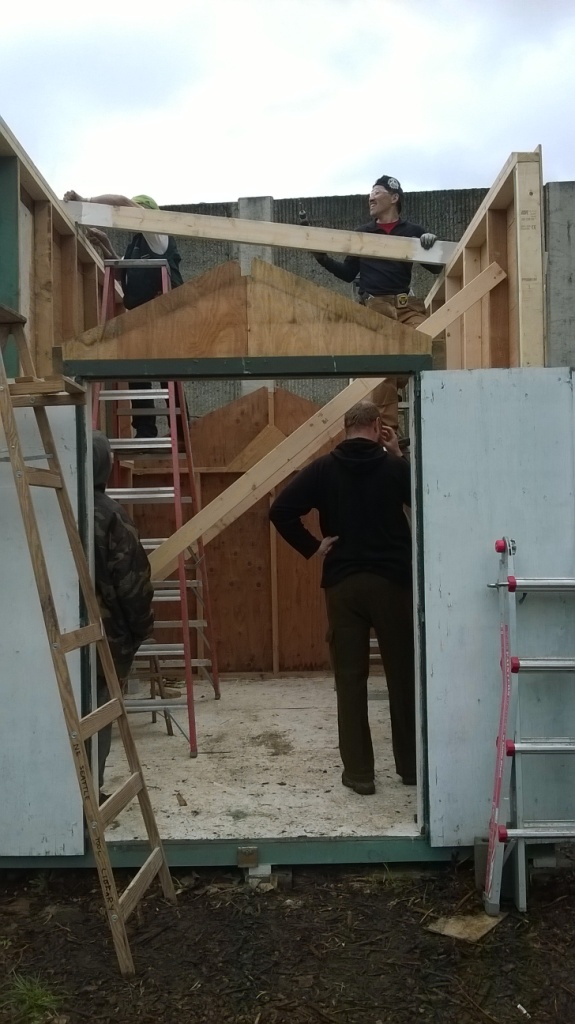
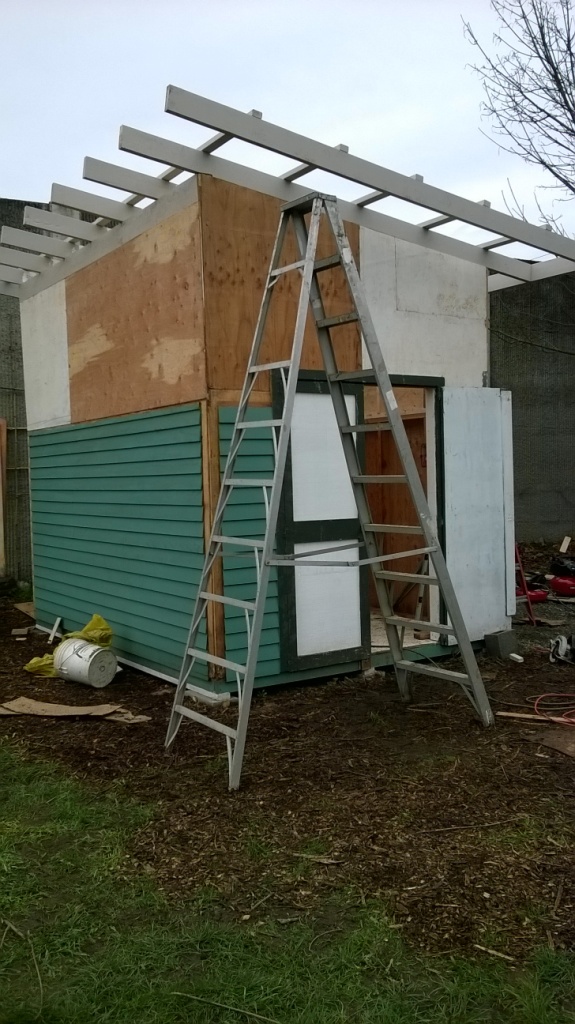
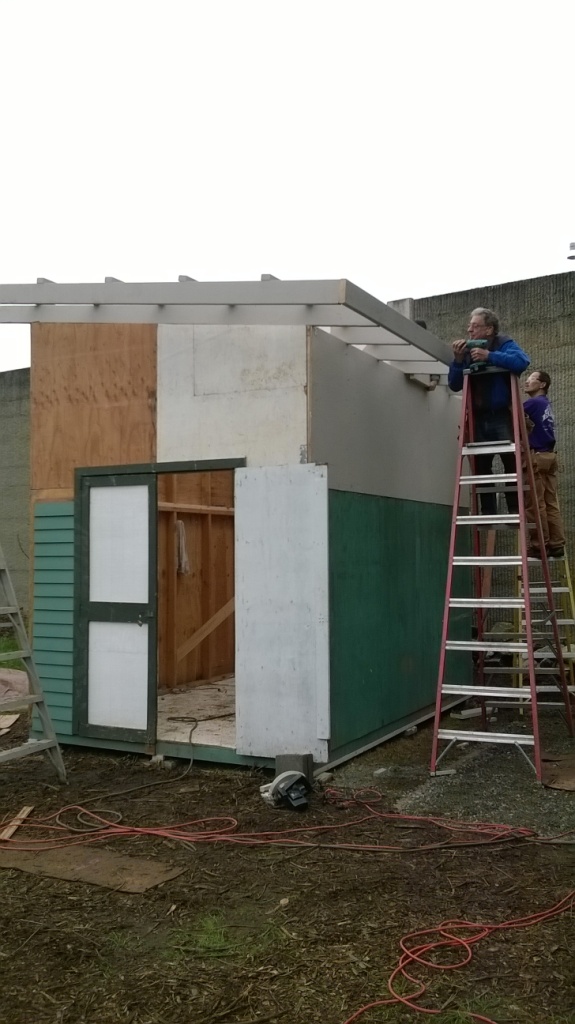
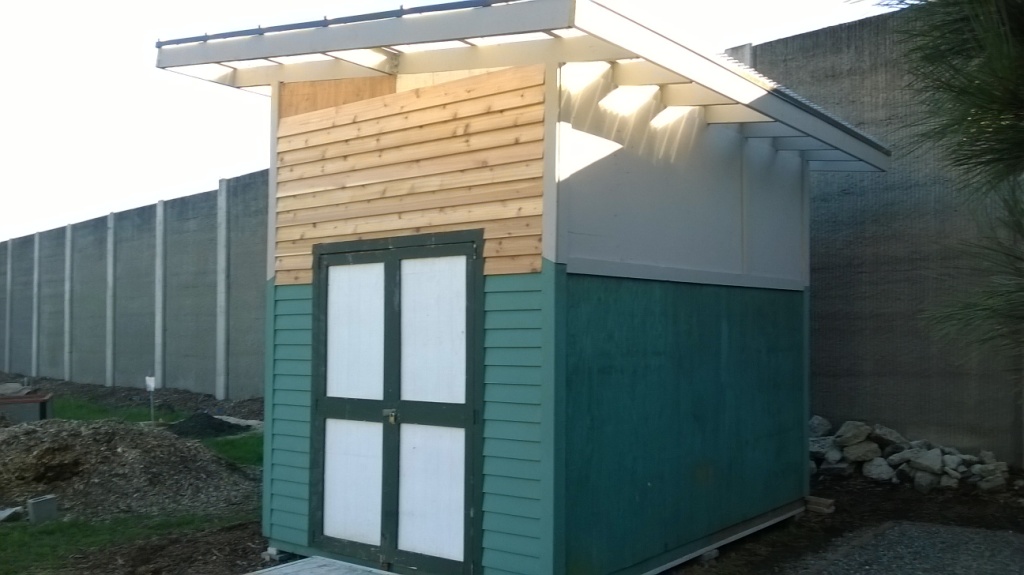
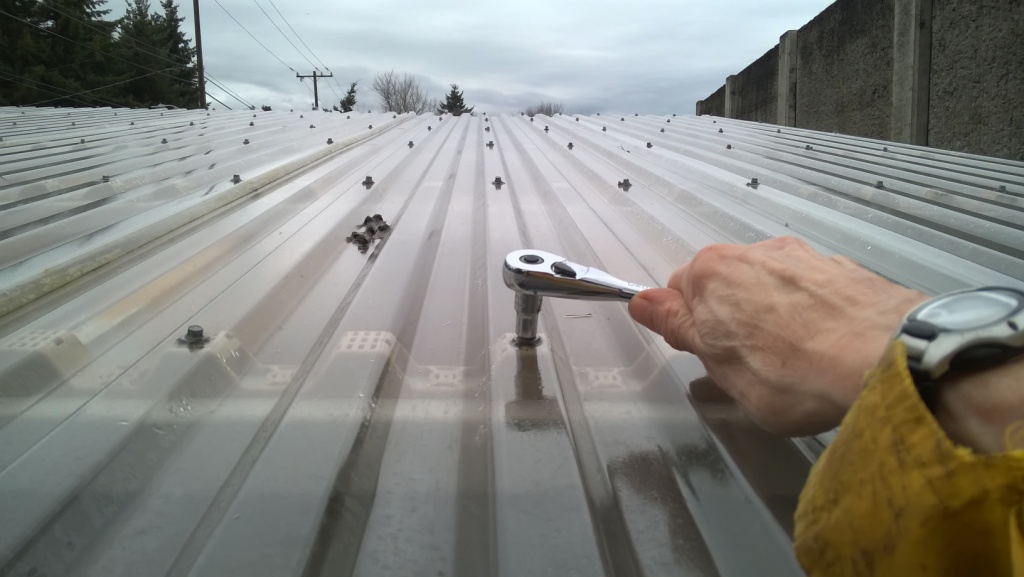
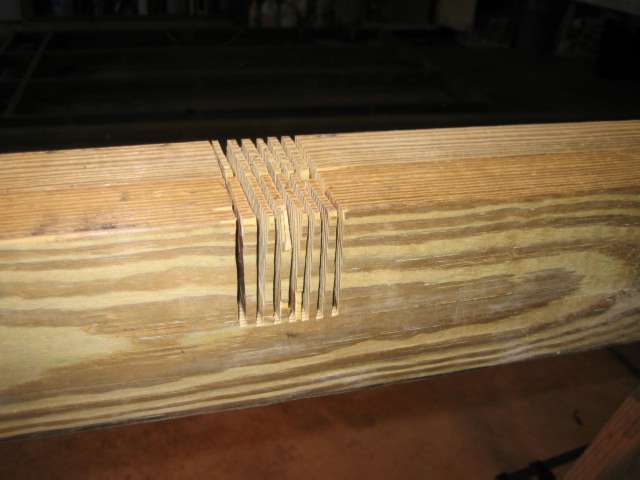
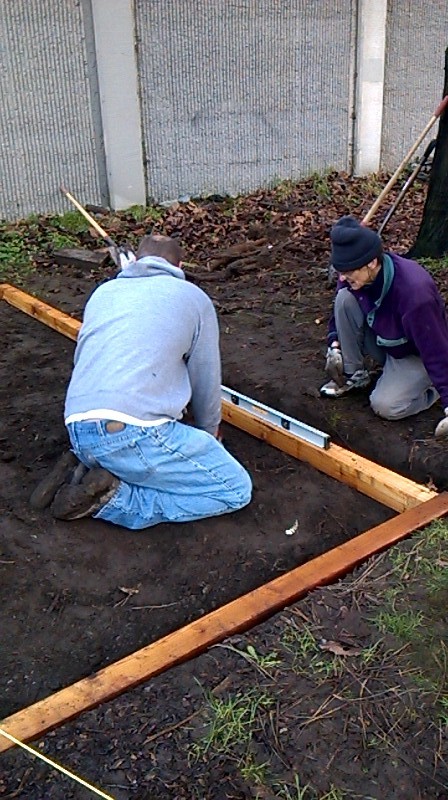
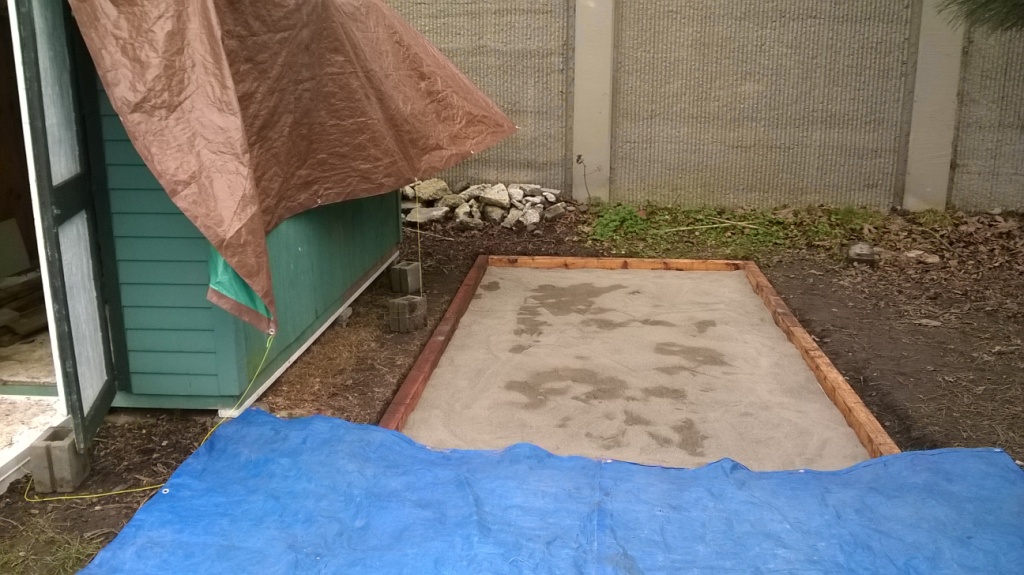
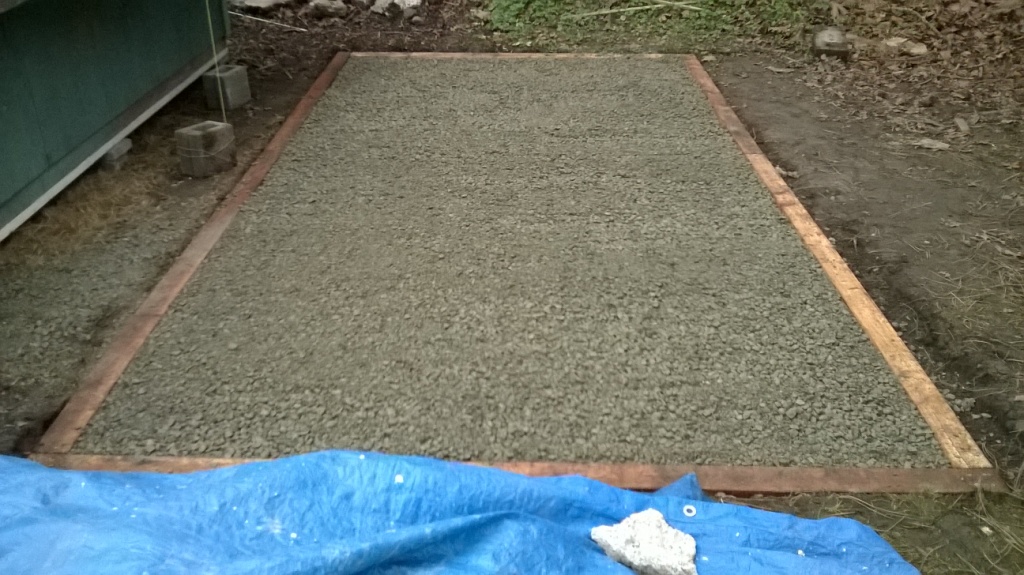
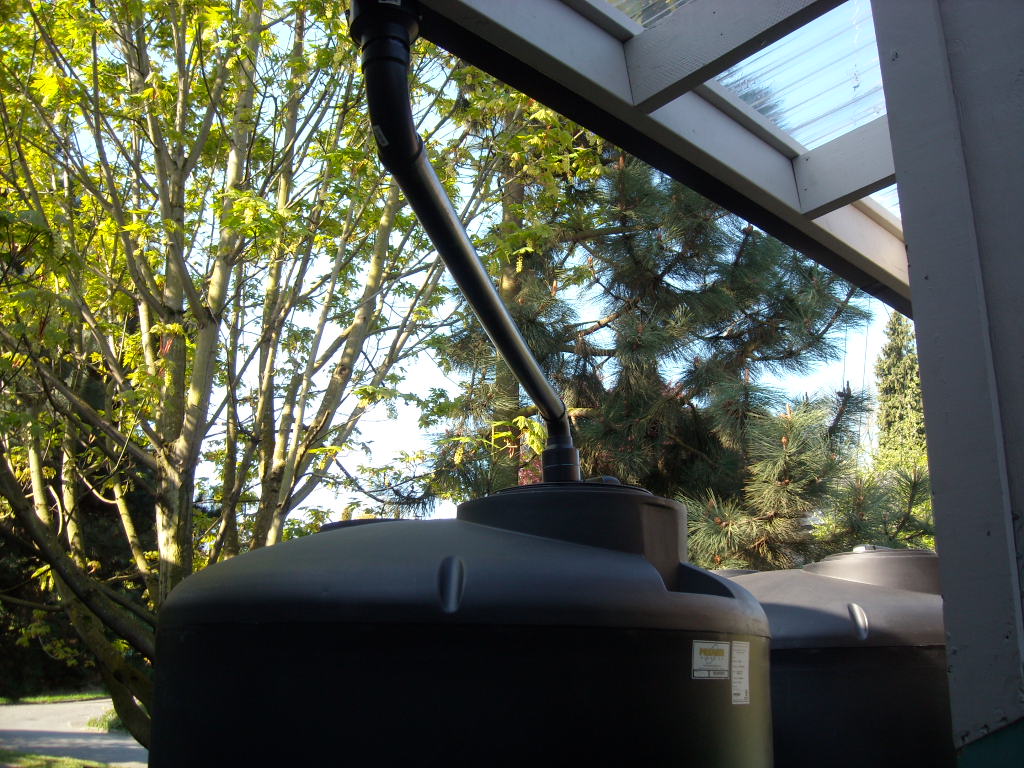

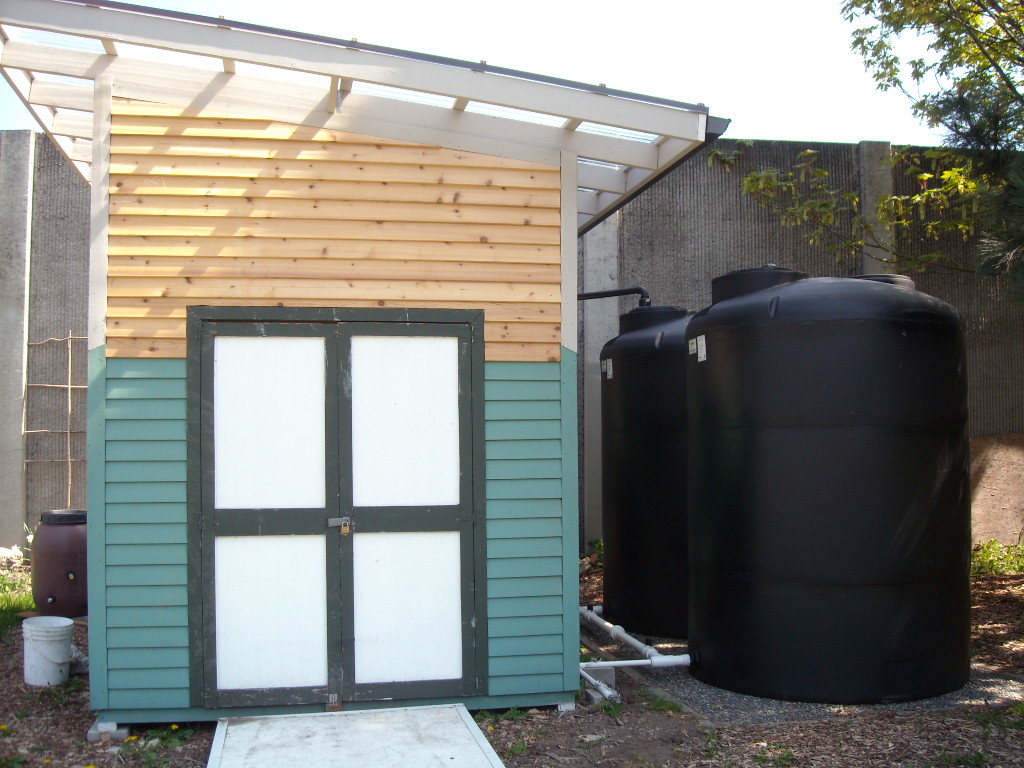
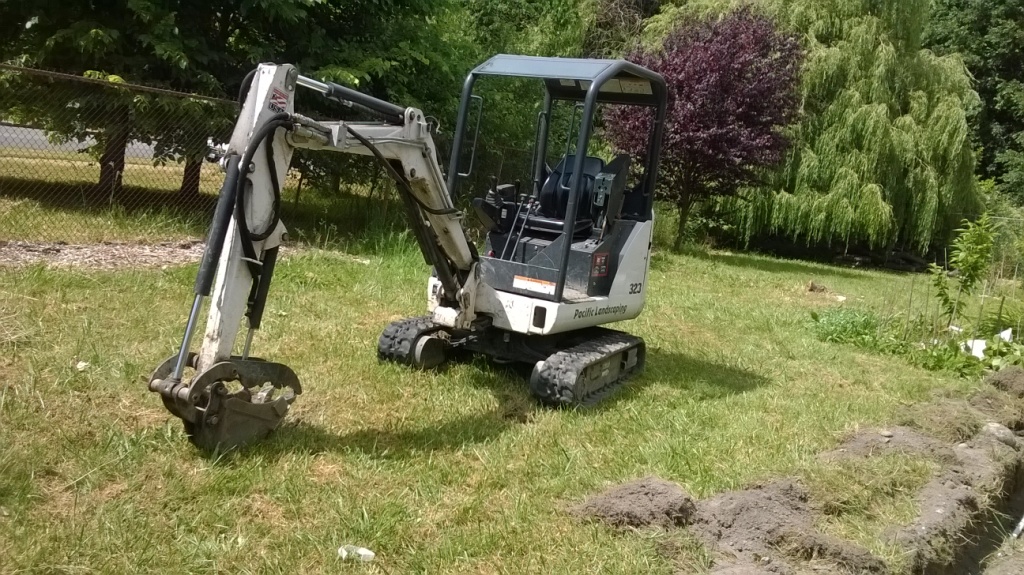
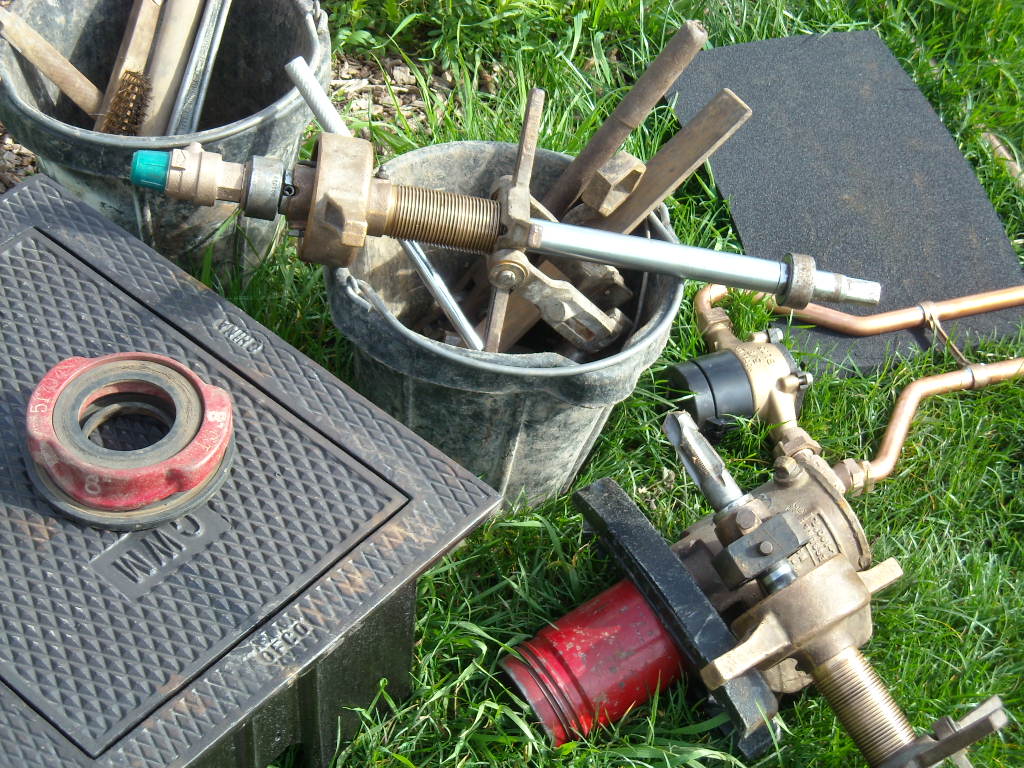
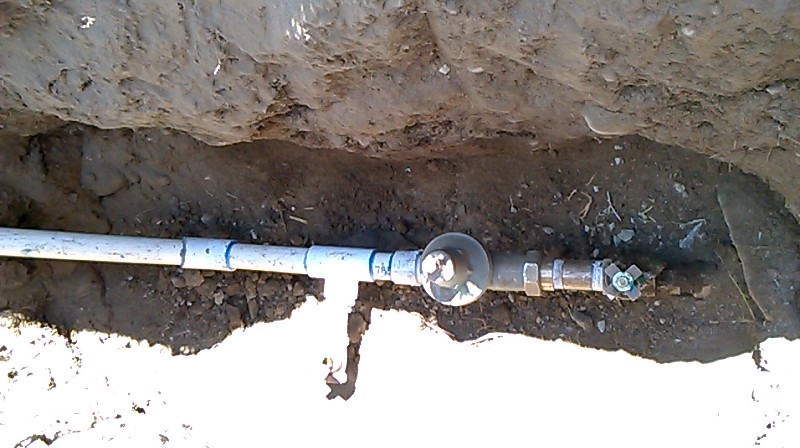
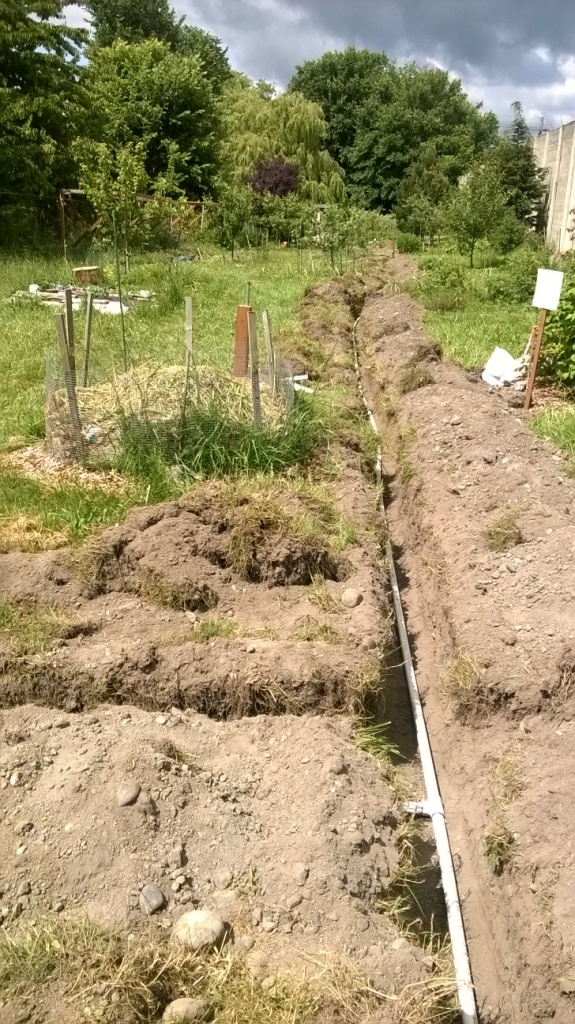
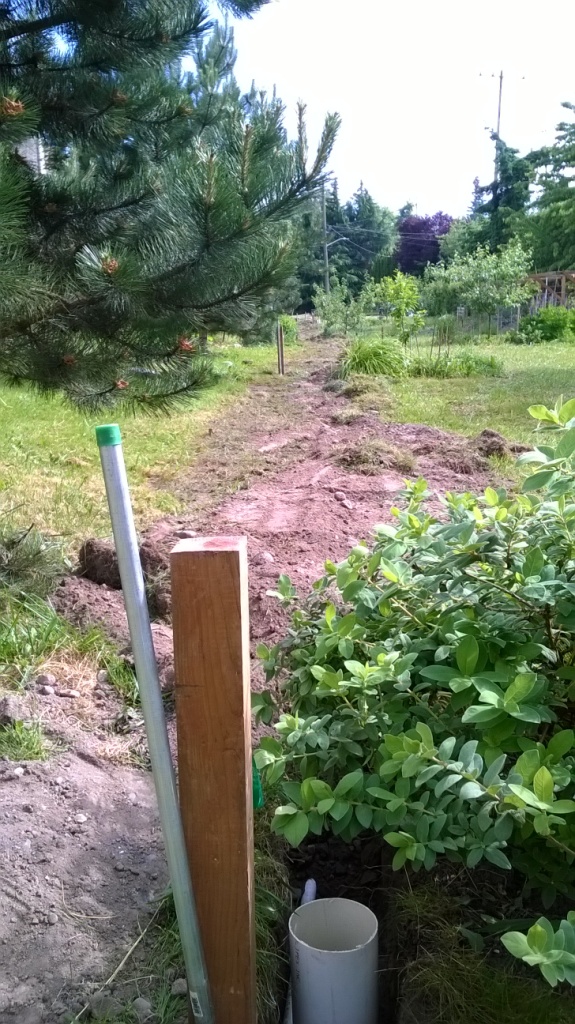
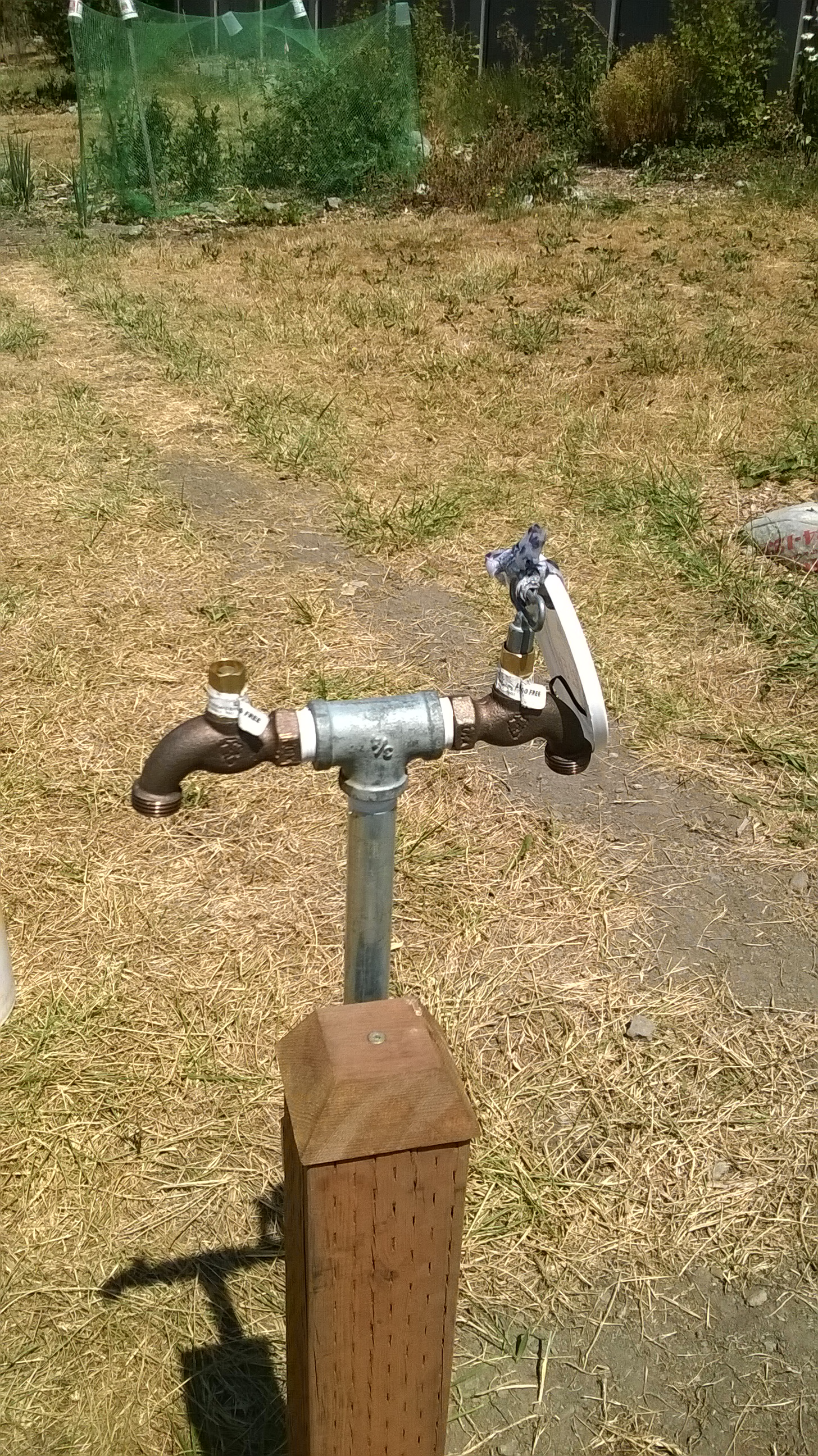
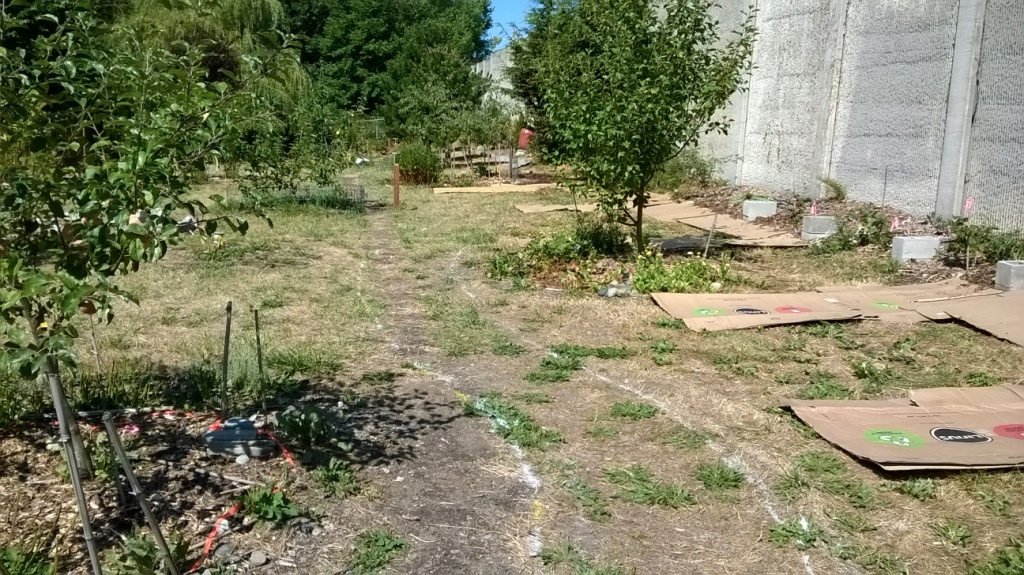
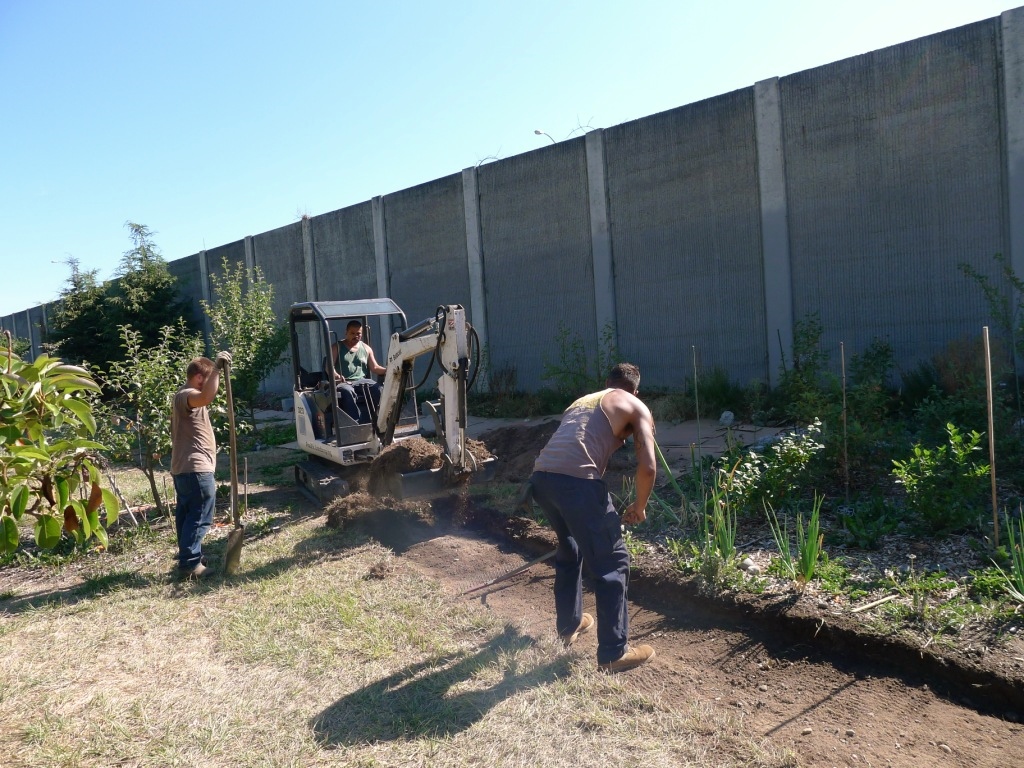
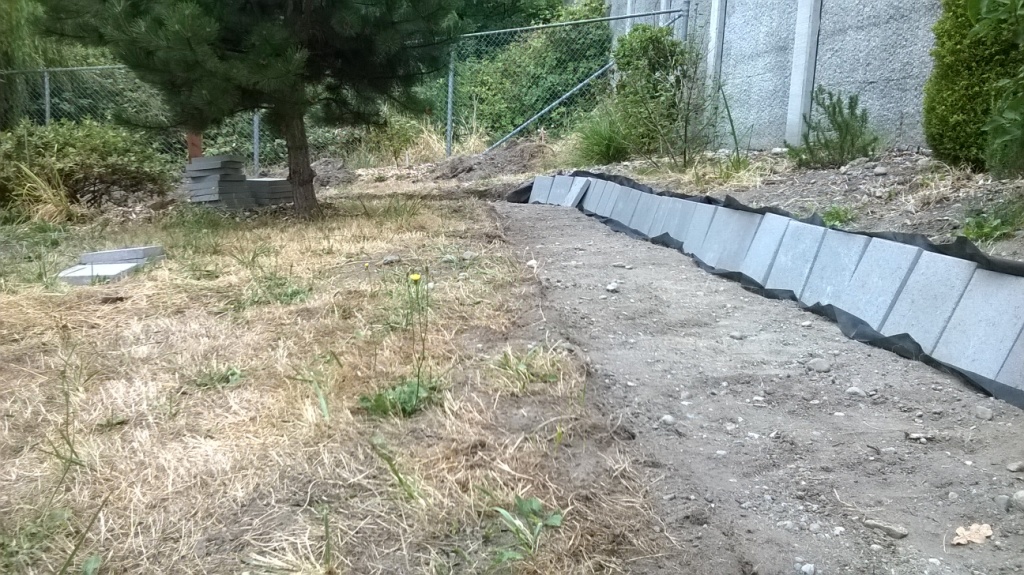
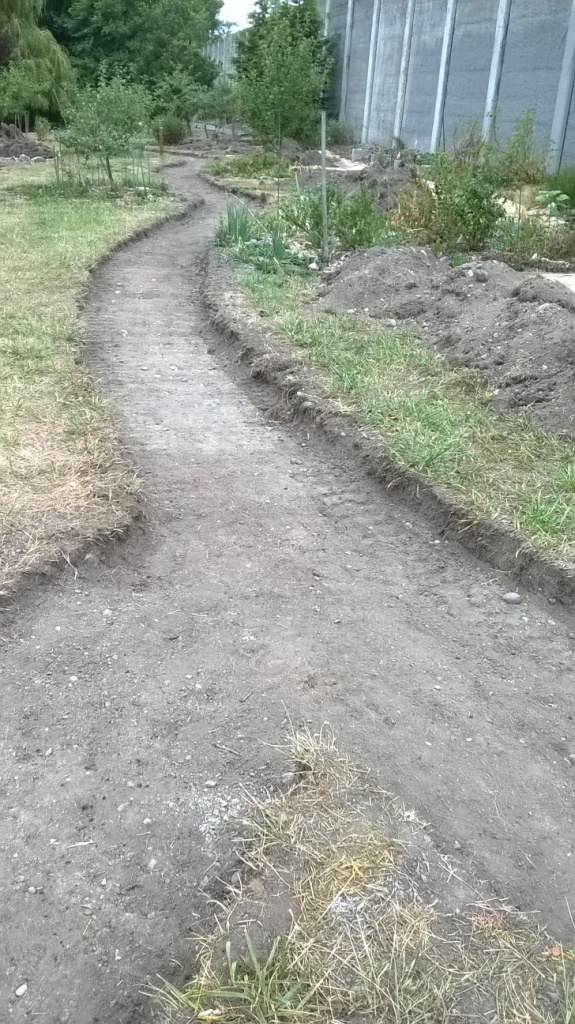
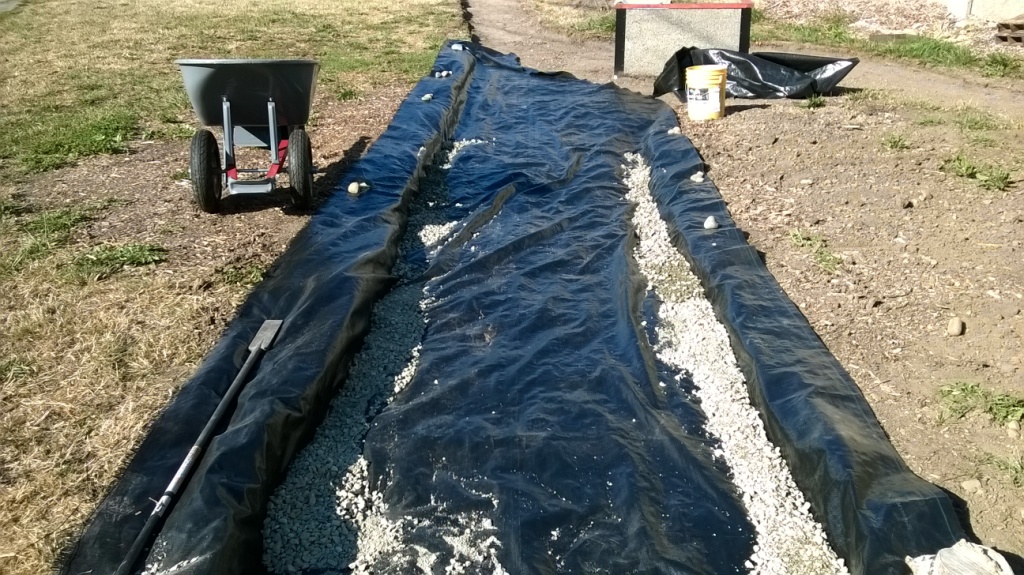
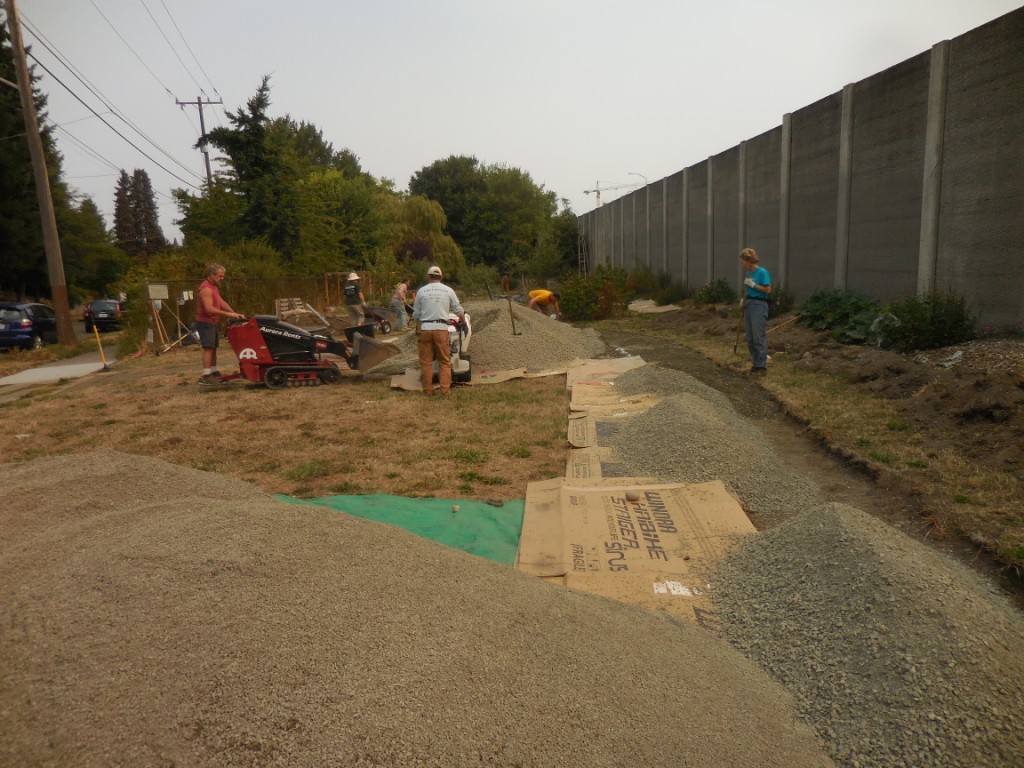
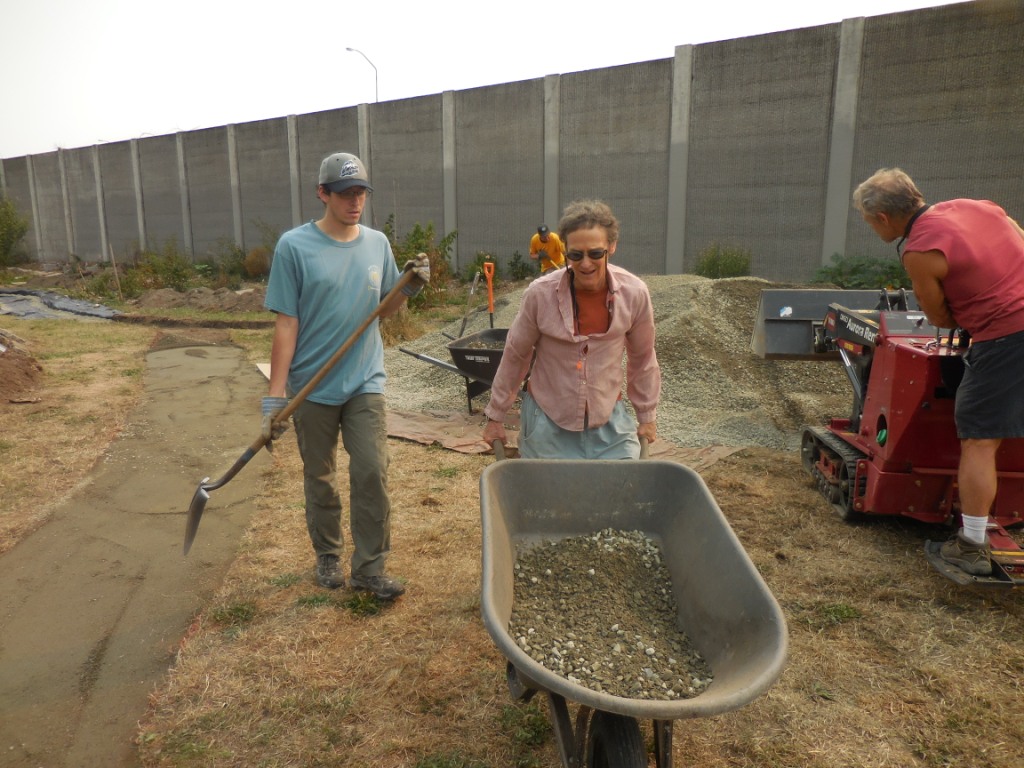
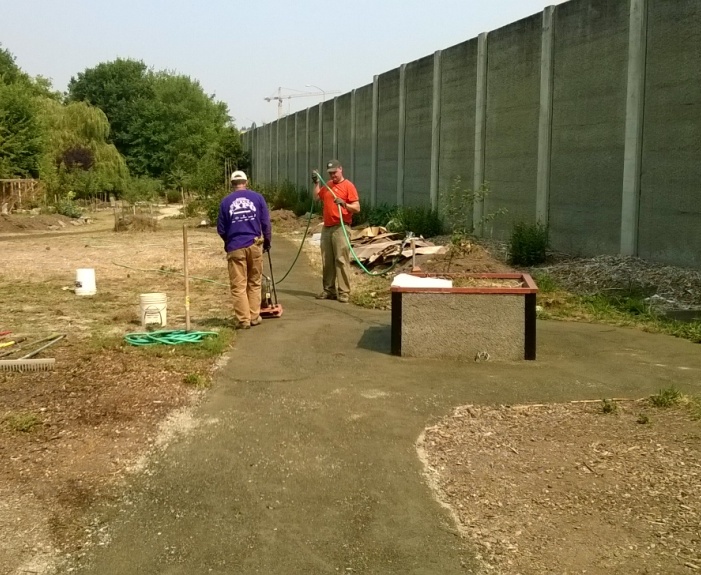
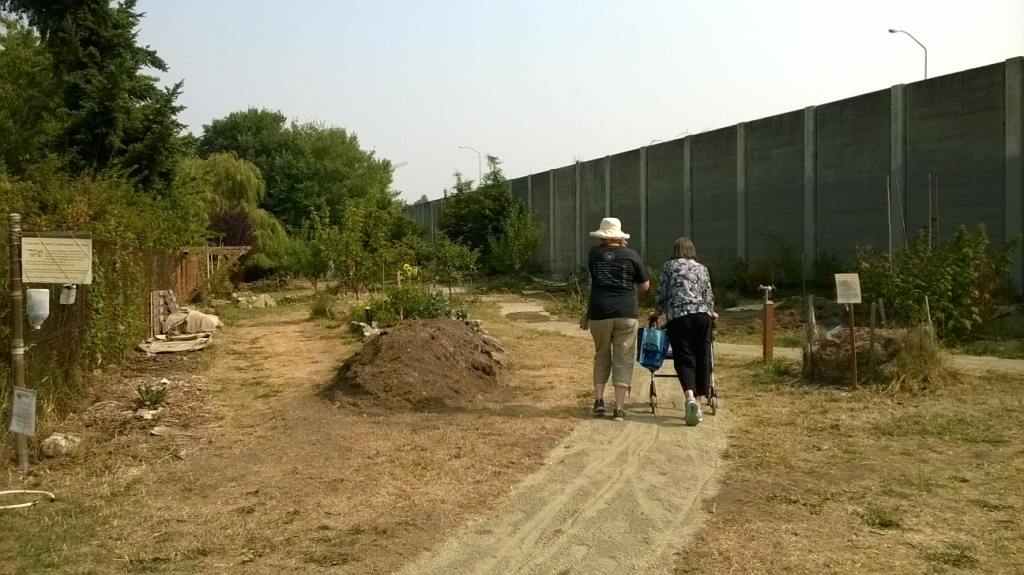
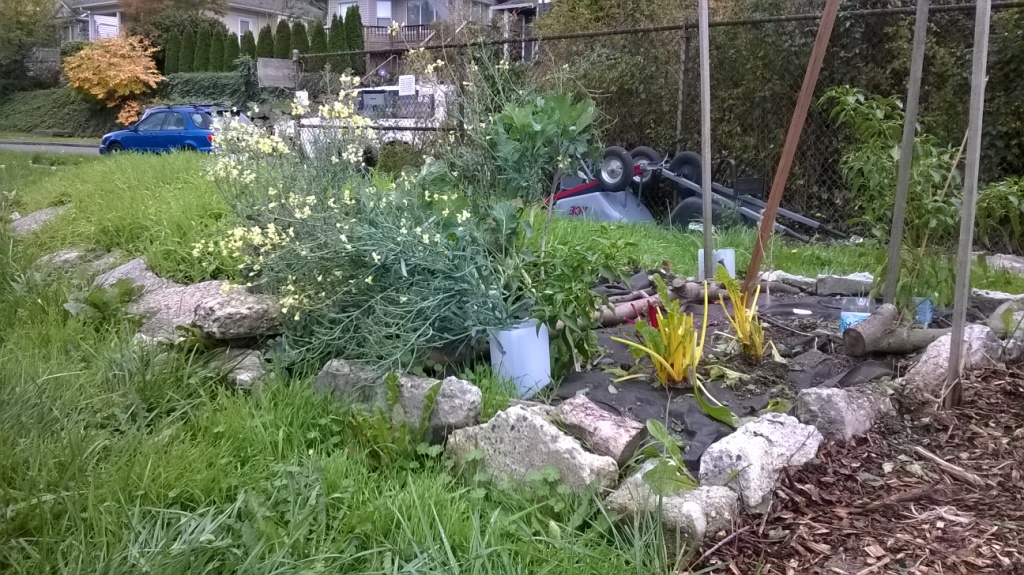
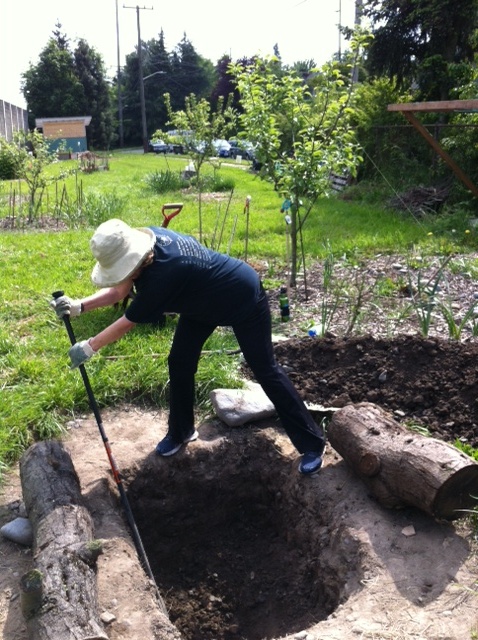
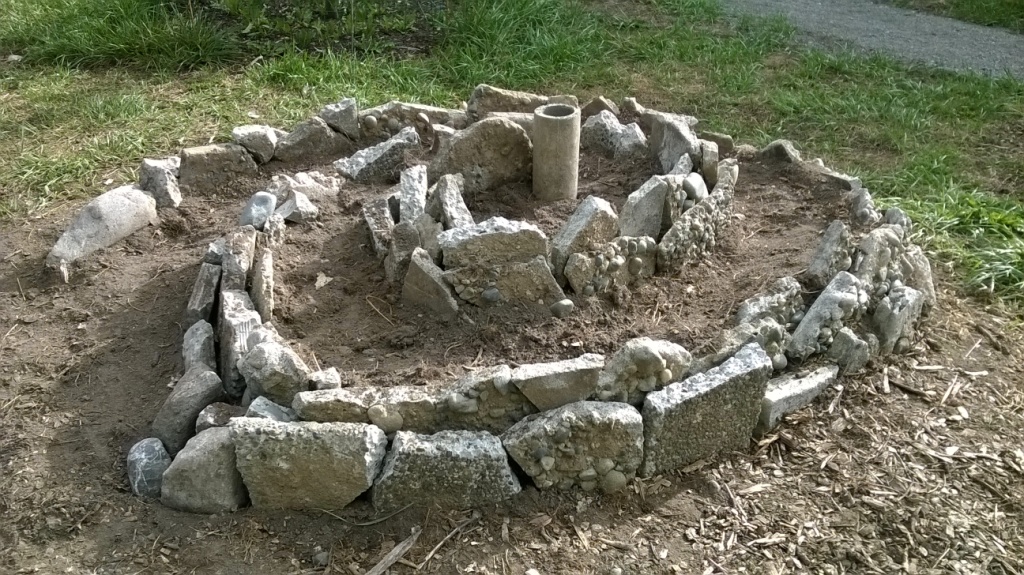
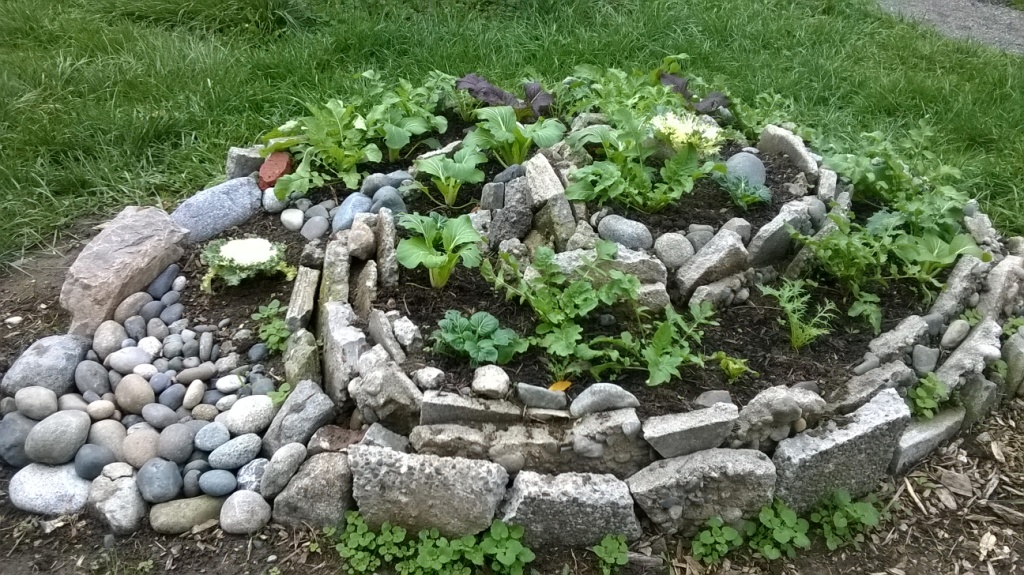
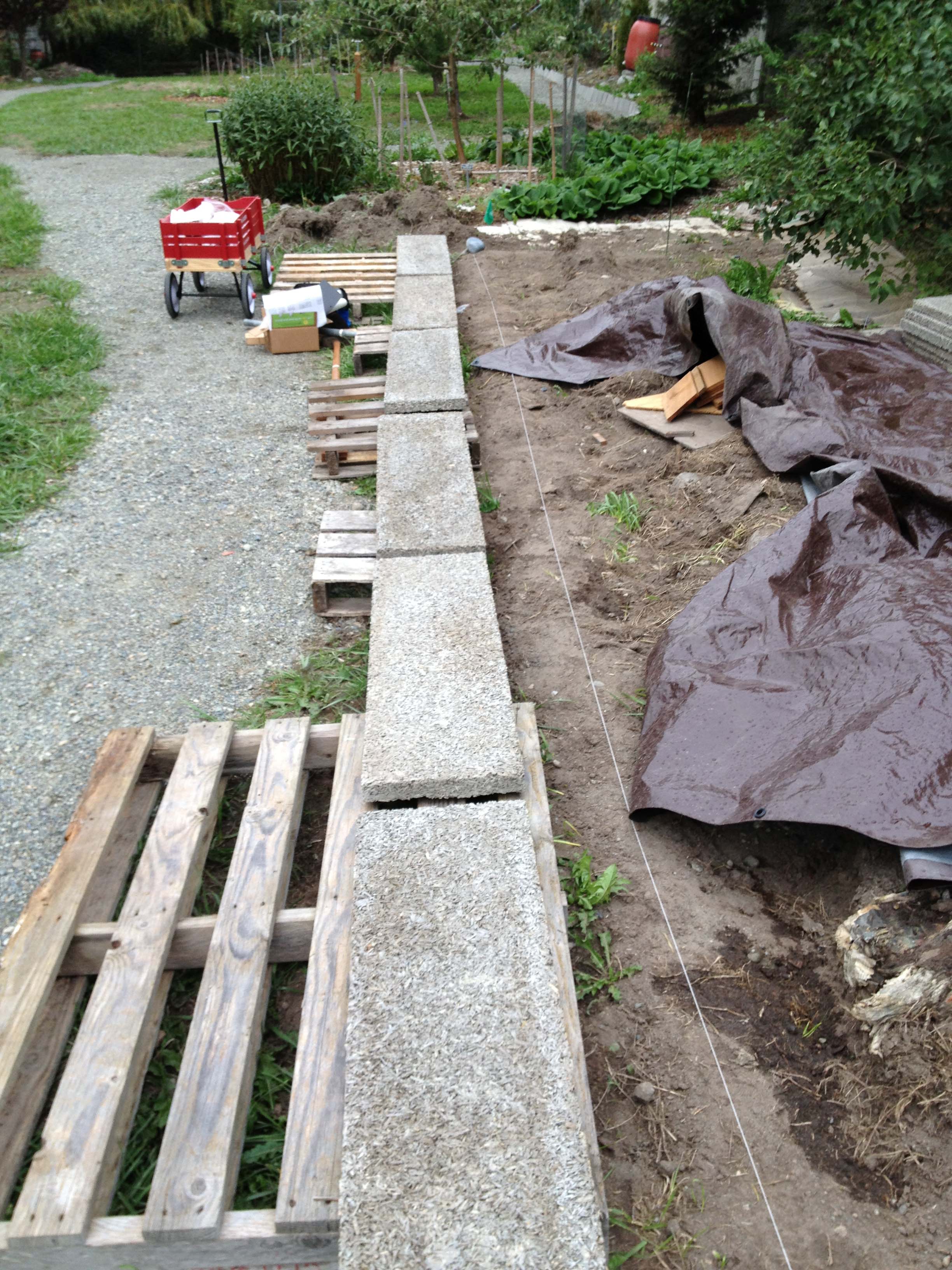
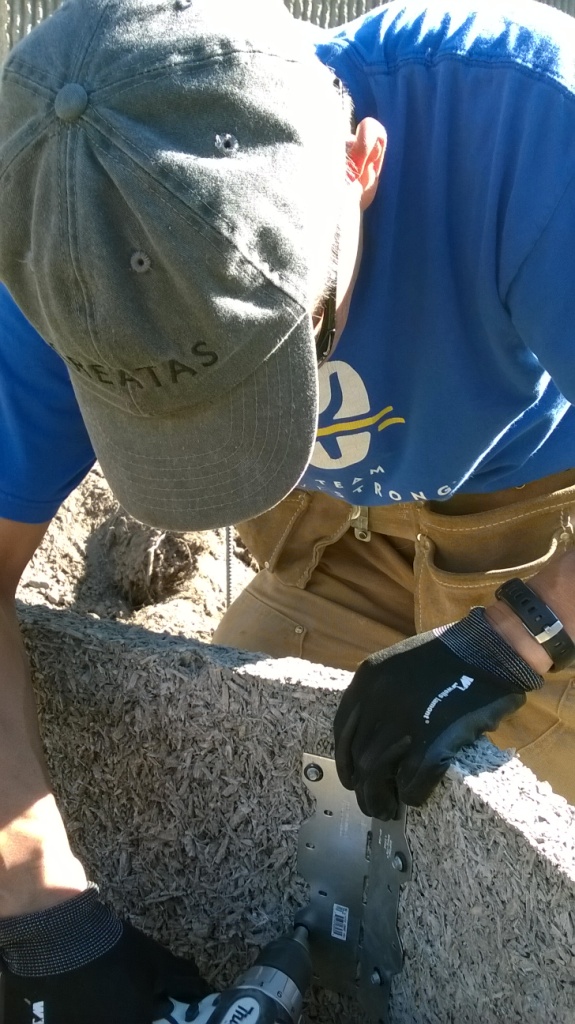
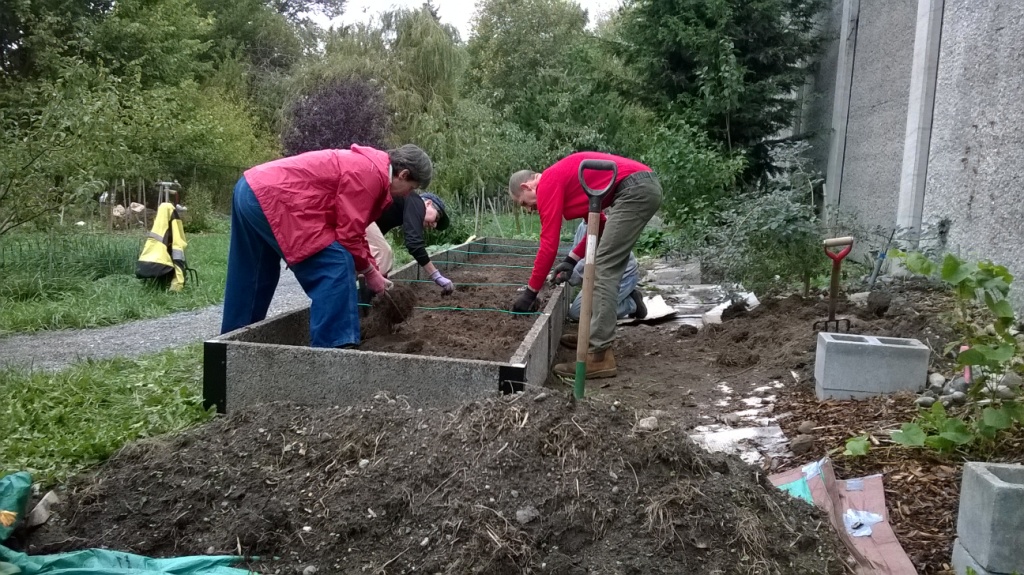
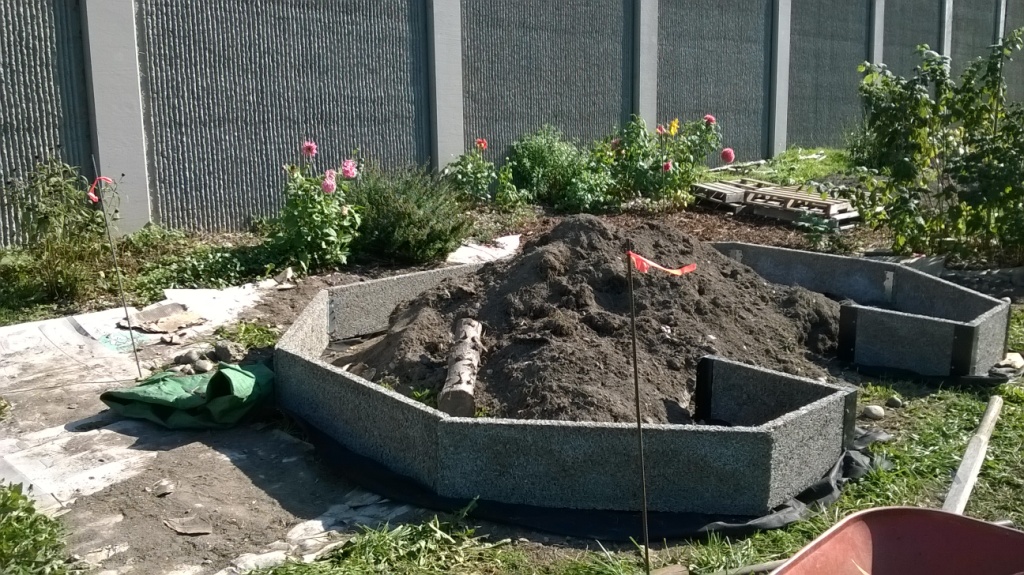
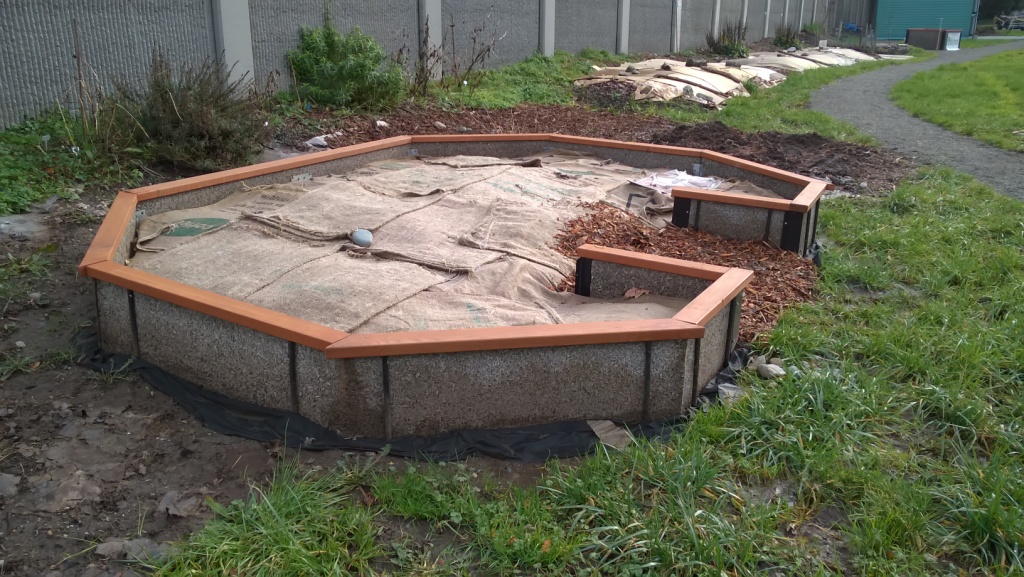
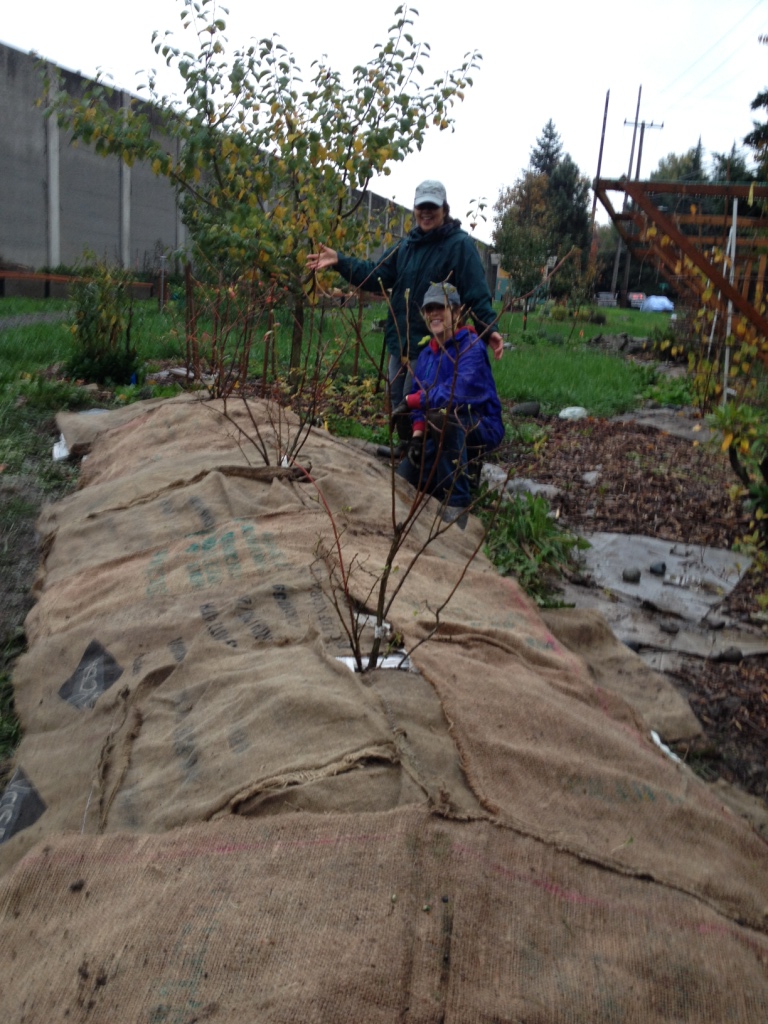
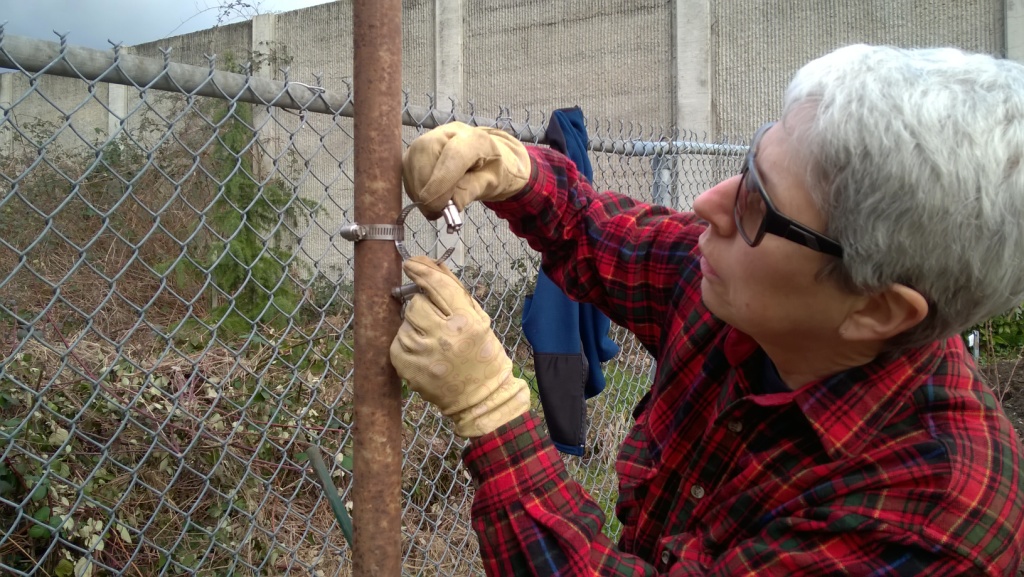
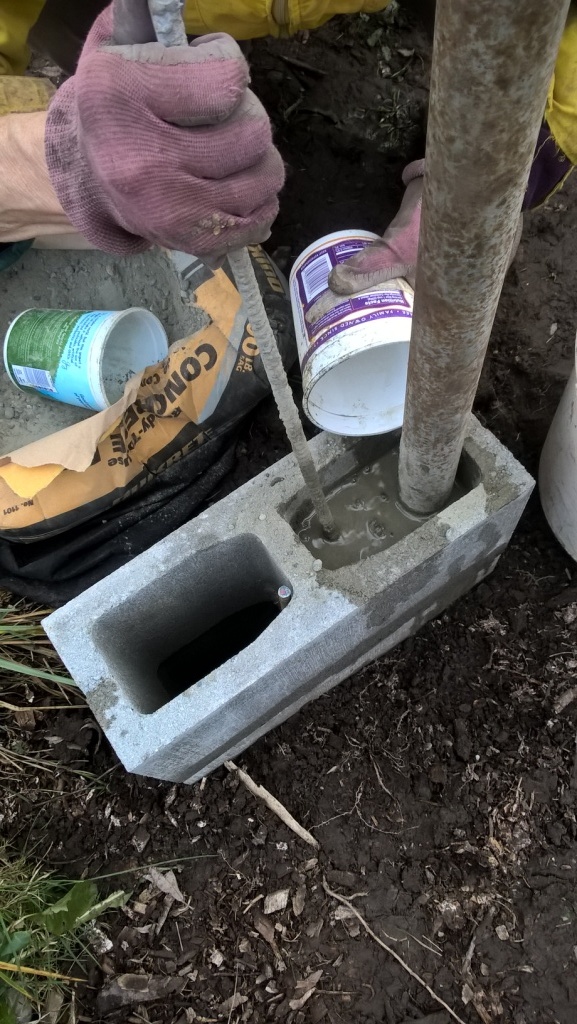
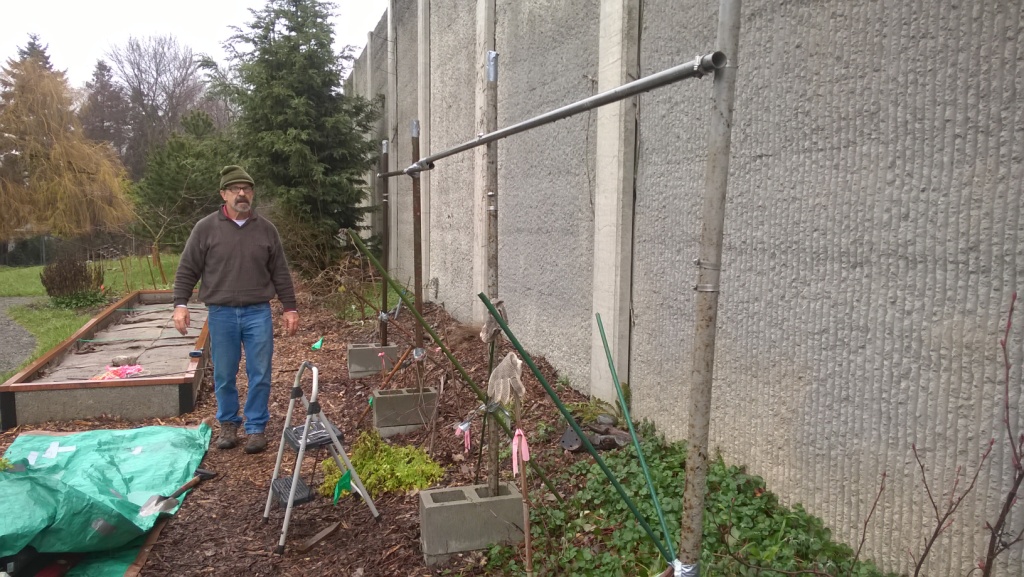
Amazing !
Congratulations!
Nice to see a summary of the project with its costs, volunteer hours and friends made.
Thanks for the post & slide shows!
Get to see what else happened where I couldn’t see, or when I wasn’t there.